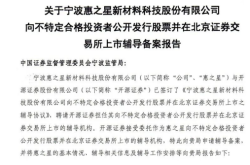Yan Junjie's Reverse SenseTime Mark in AI Race
![]() 07/04 2025
07/04 2025
![]() 746
746
Midway through the year, the term "AI Six Tigers" appears to have lost its luster, with DeepSeek emerging as a game-changer in AI entrepreneurship. The six leading players have encountered various challenges, including investment cuts, business layoffs, strategic shifts, and urgent listing plans.
In February, Dark Side of the Moon halted excessive spending; March saw Baichuan Intelligence lay off its financial industry To B team; April witnessed Wisdom Spectrum submit a listing application to the Beijing Securities Regulatory Bureau; May brought Zero One Things' full embrace of To B; June reported Step Star's reduced investment in C-end apps and shift towards Agent; and most recently, MiniMax announced plans to list on the Hong Kong stock exchange this year, hiring a financial advisor for the IPO.
Amid DeepSeek's accelerating impact, the Six Tigers are aware that market patience is waning. Listing is one strategy to regain market trust.
Among the two companies actively seeking listings, Wisdom Spectrum and MiniMax (Xi Yu Technology) have distinct business focuses. While Wisdom Spectrum, with its AI chat app Qingyan, targets specific groups and enterprises, MiniMax focuses on pan-C-end products like Xingye, Conch AI, and Talkie.
Compared to the AI Four Dragons (SenseTime, CloudWalk, Megvii, Yitu), Wisdom Spectrum's profit model aligns more closely, but MiniMax's diverges significantly. A successful listing would make MiniMax a unique entity among domestic companies: a large model unicorn focusing on To C business with open-source models, potentially becoming the first Six Tiger to sprint towards an IPO.
This contrasts sharply with SenseTime, the AI Four Dragon with the highest profile, characterized by its AI unicorn status, To B focus, and non-open-source large models, making it the last of the Four Dragons to pursue an IPO.
Interestingly, MiniMax's founder Yan Junjie was once SenseTime's Vice President. His departure to establish MiniMax seems to have imparted more "lessons" than "experience," further accentuating his "reverse SenseTime mark" as MiniMax leads the Six Tigers in IPO pursuits.
01. Yan Junjie's Departure and the SenseTime Mark
Public information reveals that another MiniMax founder, Zhou Yucong, also hails from SenseTime. Initially, when the AI Six Tigers' models and evolution paths were unclear, MiniMax was deemed "SenseTime-related" or "SenseTime 2.0." This referred to the management's resumes rather than business emulation.
Yan Junjie, who has been more vocal in recent years, previously led deep learning toolchains, underlying algorithms, and general AI technology development at SenseTime, eventually becoming Vice President, Deputy Dean of the Research Institute, and CTO of the Smart City Business Group.
Large model architecture relies on deep learning and neural networks, particularly Transformer and its variants. Yan Junjie's responsibility for "general AI technology" indicates an early AGI vision, common among technological founders of unicorn AI companies.
Post-SenseTime, Yan Junjie rarely mentioned his former employer, consistent with his high-profile yet low-key departure. On December 30, 2021, SenseTime listed on the Hong Kong Stock Exchange, hailed as the "world's largest AI IPO." In August, it became the last of the Four Dragons to submit a listing application, passing the hearing by November's end.
Yan Junjie had already left SenseTime and founded MiniMax by December 2021. Aware of SenseTime's impending listing, he chose to start his venture post-confirmation but pre-listing, a bold move perhaps crucial for MiniMax.
An early MiniMax investor noted, "ChatGPT hadn't launched, OpenAI was lukewarm, and other Chinese companies hadn't emerged. SenseTime was about to IPO, and Yan Junjie ventured out, truly believing in AGI."
Yan Junjie's entrepreneurial fervor suggests SenseTime's "technology orientation" still influences his thinking. In 2023, the year of large model explosions, he bet on the MoE (Mixture of Experts) model, which became mainstream in 2025's first half.
Yan Junjie believed MoE was essential for serving tens or hundreds of millions of users, as "token generation costs and latency are unacceptable; it would soon collapse."
Perhaps facing SenseTime, Yan Junjie focused on completing established missions and finding new ones within his vision, rather than "imitating or avoiding" it.
Pre-large model era, the AI Four Dragons were marked by technology orientation, serving government and enterprise customers for faster cash-ins. These projects were non-standard and customized, hindering the development of widely standardized products and lengthening payment cycles.
As a technology-oriented founder who experienced this era, Yan Junjie's SenseTime experience firmly positioned him in the large model era's "involution."
02. MiniMax's Reverse SenseTime Mark in IPO Sprint
Few now mention MiniMax as SenseTime 2.0, as its business differs markedly. Yet, being "from the same door" yet "completely different" deepens the connection.
Among the current Four Dragons, only SenseTime and CloudWalk have listed, with SenseTime notably the last to apply. Its listing pace was sluggish, and profitability remains an issue: eleven years after founding and three and a half years post-listing, it still incurs losses.
Yan Junjie's departure to found MiniMax just before SenseTime's listing, coupled with MiniMax's active IPO pursuit, suggests he learned a crucial lesson: managing market patience.
In a 2022 interview with China Entrepreneur, Yan Junjie discussed MiniMax's technology-commercialization balance. "Technology's readiness determines if you're a qualified AI company. Insufficiency merits elimination," he said.
However, good technology alone is insufficient. Now, there's an AI filter, but a year later, commercialization might dominate perceptions. "Short-term, AI technology progress is crucial. A year later, commercialization will be vital, and MiniMax is progressing rapidly," he added.
MiniMax's speed contrasts sharply with SenseTime. It quickly explores business models and sprints towards an IPO.
In Qimai's 2024 AI product download list, MiniMax's virtual companionship app "Xingye" ranked 25th, behind ByteDance's "Catbox" at 22nd. Both are virtual companionship products with a narrow ranking gap. Other large model-era apps are "intelligent assistants," like Doubao (2), Kimi (7), Wenxiaoyan (9), Tongyi (18), and Wisdom Spectrum Qingyan (21).
Qimai's latest data shows that under DeepSeek's influence, Wisdom Spectrum Qingyan lags behind virtual companionship products. Catbox and Xingye, with strong entertainment and companionship attributes, have outpaced Qingyan in downloads over the past three months.
Wisdom Spectrum's core business leans towards B-end, so Qingyan's "lag" might be inconsequential. However, MiniMax and Dark Side of the Moon, both Six Tigers leaning towards To C, prioritize C-end products.
With Talkie's overseas success and Conch AI, a video generation tool, MiniMax avoids intelligent assistants, focusing on entertaining and creative C-end AI products.
Yan Junjie's SenseTime business lesson might be that C-end applications penetrate users faster than B-end ones.
In the above interview, asked if competitors might state 80% TO B and 20% TO C ratios, Yan Junjie said, "We have no such positioning. Our focus is user penetration rate—how often our model is used."
Accompanying MiniMax's IPO sprint, a series of product launches complete the IPO narrative: from June 17, MiniMax launched the MoE (Mixture of Experts) inference model M1, video generation model Hailuo02, and general Agent product MiniMaxAgent.
Notably, M1 is claimed as "the world's first open-source large-scale mixed-architecture inference model," outperforming domestic closed-source models and nearing DeepSeek R1 and advanced overseas models.
SenseTime also launched its large model Ririxin but hasn't shown an open-source stance. As Baidu ERNIE turns to open source, it's becoming mainstream.
Yan Junjie's SenseTime technology lesson might be "open source" and light technical assets.
Pre-large model era, MiniMax rented cheap GPU computing power from ByteDance's Volcano Engine but didn't purchase GPUs. Yan Junjie believes asset holding distorts actions, contrasting SenseTime's self-developed chips approach.
From swiftly finding a To C business model to open-source and technical asset choices to rapid IPO sprints, MiniMax's narrative contrasts sharply with SenseTime's then and now, progressing layer by layer.
If MiniMax succeeds in listing, its share price and SenseTime's long-term trend will become interesting signal lights, aiding consensus creation.
03. Conclusion
When the industry needs more consensus, and this becomes a consensus itself, whether Wisdom Spectrum or MiniMax's listing sprint seems less confrontational. Share prices are the best way to demonstrate and sort out consensus.
Having multiple unicorn listings, each representing a branch, is better than one standout. More samples create more consensus.
Wisdom Spectrum or other Six Tigers focusing on To B business listings, compared to SenseTime and CloudWalk's share prices, reveal market expectations and confidence in similar profit models across eras.
If MiniMax or Kimi lists (rumors suggested Kimi's consideration), it would be a novel entity: a unicorn focusing on new pan-C-end internet products, rare in the domestic stock market.
The so-called "first large model stock" title? Even during the AI Four Dragons era, the "first AI stock" ultimately "didn't" determine anything.
*Title and in-text images sourced from the internet.



